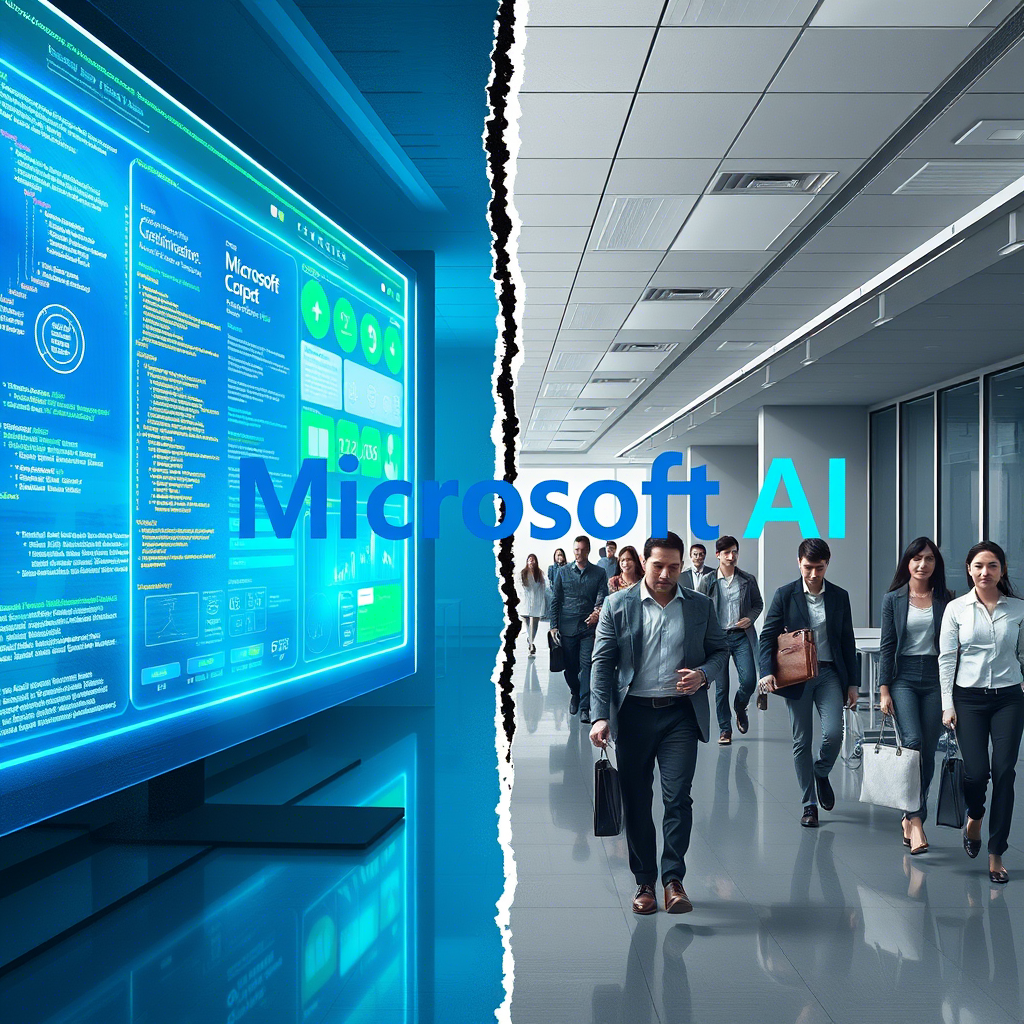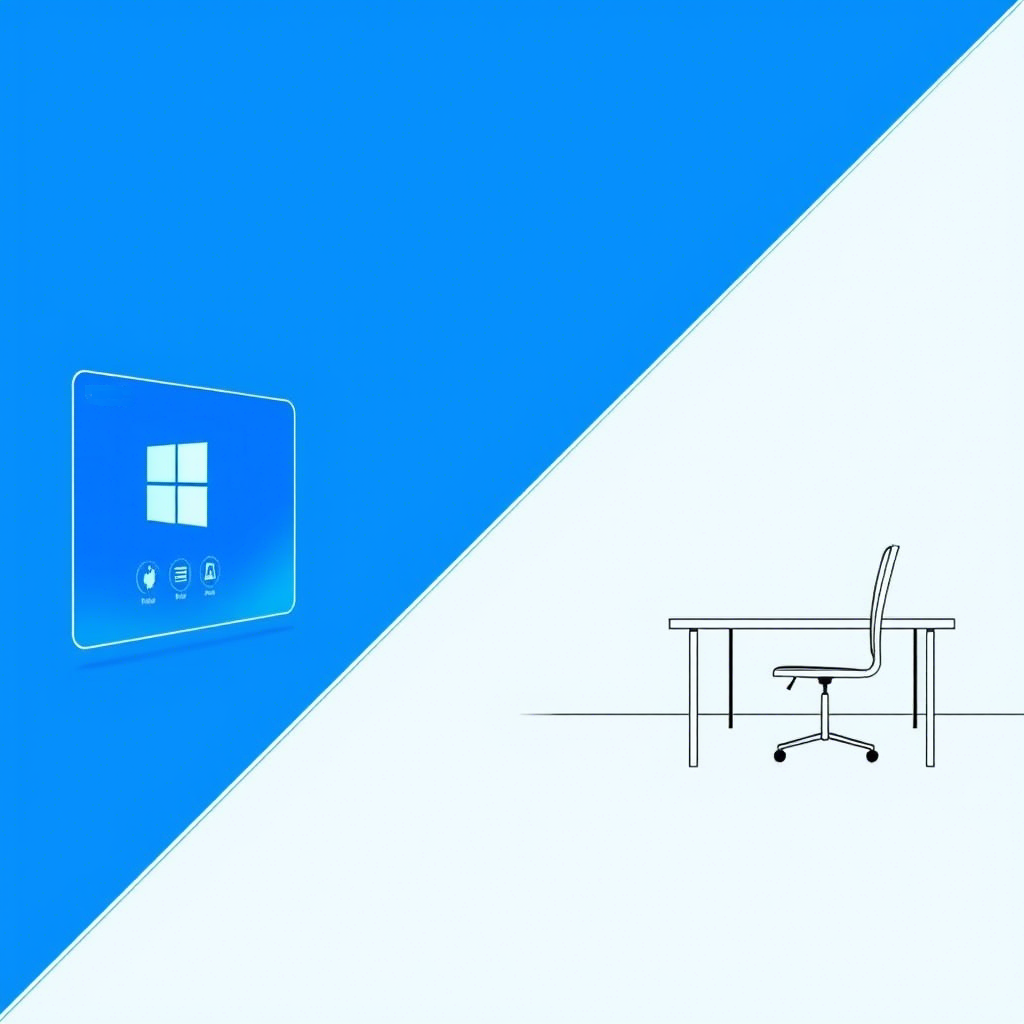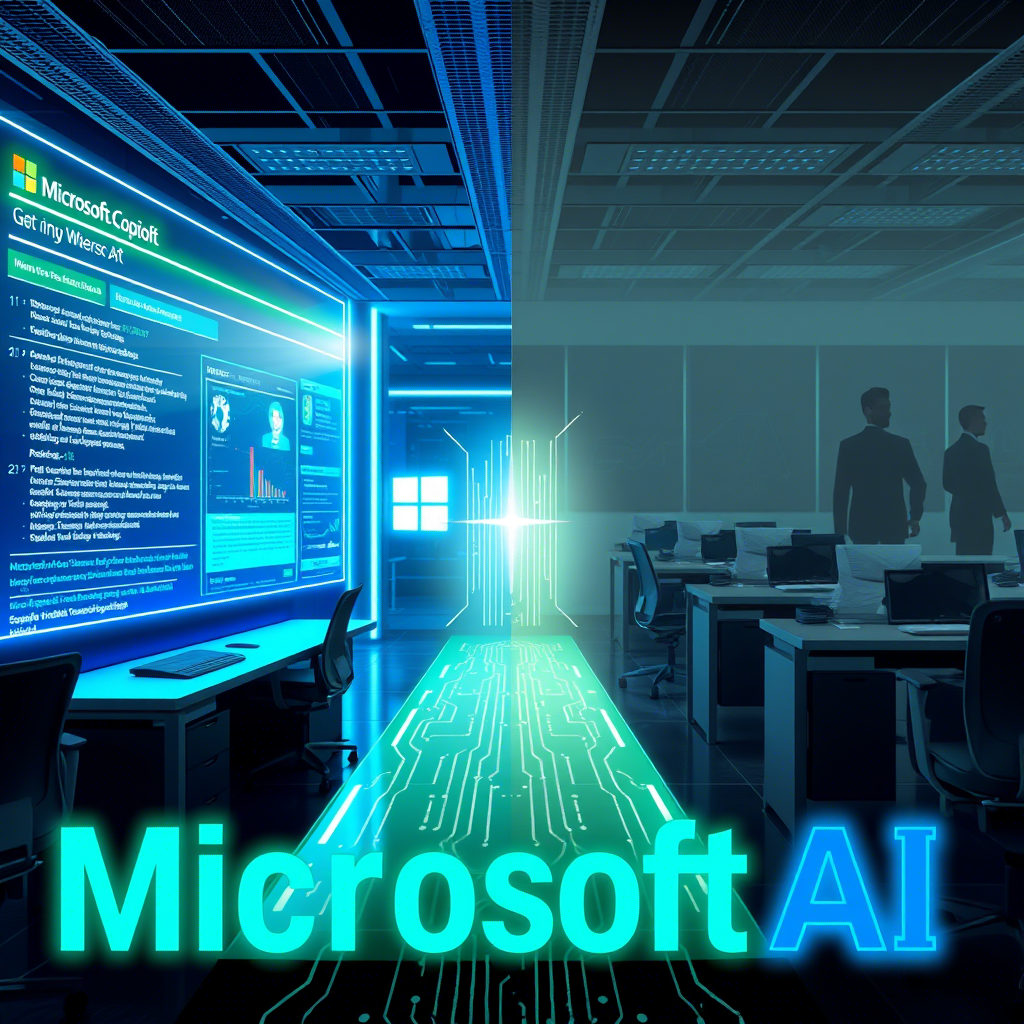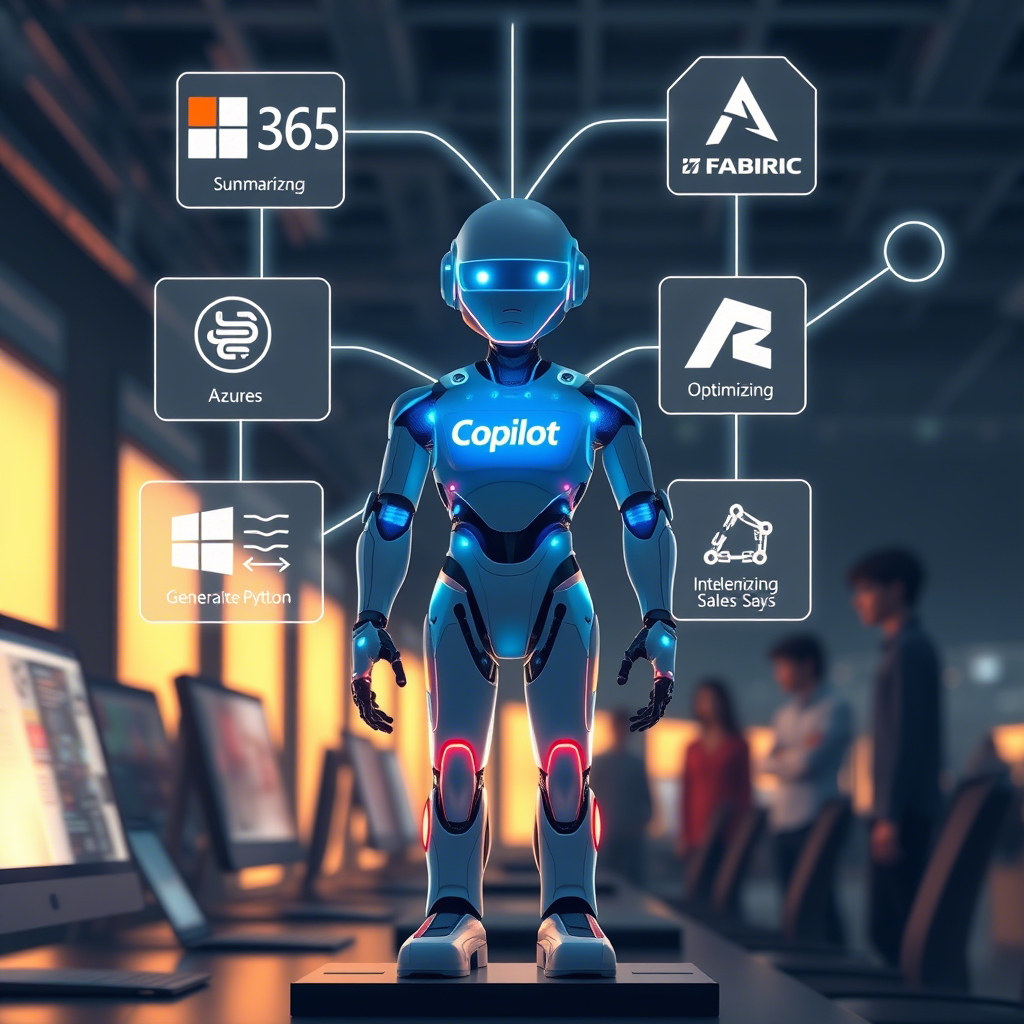In a series of transformative moves, Microsoft has announced significant layoffs affecting over 15,000 employees in 2025, with a substantial portion attributed to the company’s aggressive pivot toward artificial intelligence (AI). Concurrently, Microsoft is enhancing its AI assistant, Copilot, with new capabilities such as summarizing news and aiding web navigation, positioning it as a formidable competitor in the rapidly evolving AI agent market. These developments have ignited heated discussions about the role of AI in reshaping the workforce, raising concerns about job displacement while highlighting the potential for increased productivity and innovation.

A Wave of Layoffs Amid AI Investments
Microsoft, a tech giant with a global workforce of approximately 228,000 as of June 2024, has executed multiple rounds of layoffs this year, totaling over 15,000 job cuts. The most recent wave, announced in early July 2025, saw approximately 9,000 positions eliminated, primarily impacting the Xbox gaming division and sales teams. Earlier cuts in May and June removed around 6,000 roles, with additional reductions of about 850 employees in Washington state, particularly in software engineering and product management roles. These layoffs follow a pattern of workforce reductions, including a significant cut of 10,000 employees in 2023, aimed at streamlining operations post-pandemic.
The layoffs are closely tied to Microsoft’s massive investment in AI infrastructure, with the company allocating $80 billion in fiscal year 2025 to bolster its AI capabilities. This includes building data centers to support cloud computing and AI development, as well as advancing tools like GitHub Copilot, which now serves over 15 million users and writes approximately 30% of Microsoft’s code. The company’s Chief Commercial Officer, Judson Althoff, recently highlighted that AI-driven automation in call centers alone saved Microsoft $500 million last year, underscoring the financial incentives behind its AI strategy. However, this cost-saving narrative has drawn criticism, especially as the layoffs coincide with record profits of $26 billion in the first quarter and a market valuation approaching $3.74 trillion.
Critics argue that Microsoft’s layoffs reflect a broader industry trend where AI is used to justify workforce reductions. A viral Reddit post from an alleged Microsoft employee claimed that an entire team was let go as the company transitioned to an “AI-first” model, replacing traditional developer roles with a smaller, AI-focused team. The post sparked online debates, with some accusing Microsoft of prioritizing investor-driven cost-cutting over employee welfare. Others, however, see the layoffs as a strategic realignment to prepare for an AI-driven future, where skills in AI development and technical sales are increasingly prioritized.

Copilot Enhancements: A New Era of AI Agents
Amid the layoffs, Microsoft is doubling down on its AI assistant, Copilot, which is being upgraded to handle a broader range of tasks. At Microsoft Build 2025, the company unveiled significant updates to Copilot Studio and Microsoft Dataverse, introducing features like multi-agent orchestration, which allows Copilot to collaborate with other AI systems built on Microsoft 365, Azure AI, and Microsoft Fabric. These enhancements enable Copilot to delegate Stuart tasks like summarizing news articles, assisting with web navigation, and even generating Python code for complex workflows. The introduction of the Agent Store, a marketplace for pre-built AI agents, further streamlines adoption by allowing businesses to deploy custom agents across Microsoft 365 ecosystems.
Microsoft Security Copilot, now integrated with Microsoft Intune and Entra, offers AI-powered efficiency for IT operations, such as optimizing Conditional Access policies and identifying risky applications. These advancements position Copilot as a direct competitor to other AI agents like OpenAI’s ChatGPT agent and Google’s Gemini Gems, which are also expanding into enterprise applications. However, Microsoft has faced challenges in scaling Copilot’s adoption, with analysts noting “underwhelming” uptake among business customers who often prefer ChatGPT due to its established presence. To address this, Microsoft is revamping its sales strategy, replacing traditional salespeople with “solutions engineers” who can provide technical demonstrations earlier in the sales process, aiming to better showcase Copilot’s capabilities.
The company’s internal push for AI adoption is equally aggressive. Julia Liuson, President of Microsoft’s Developer Division, has mandated that AI tool usage, including Copilot and GitHub Copilot, is now a core component of every role and will factor into performance reviews. This directive comes as Microsoft faces competition from AI coding assistants like Cursor, prompting the company to allow limited use of secure external tools like Replit while emphasizing internal AI proficiency.

The Workforce Debate: Opportunity or Threat?
Microsoft’s dual focus on layoffs and AI enhancements has fueled a polarized debate about AI’s impact on the workforce. On one hand, AI’s productivity gains are undeniable. Microsoft’s CEO, Satya Nadella, has described the company as a “distillation factory” for AI, breaking down large models into specialized, task-specific tools that enhance efficiency across sales, customer service, and software development. The $500 million savings in call centers and the 9% sales boost attributed to AI underscore its transformative potential. Barclays Bank’s deployment of 100,000 M365 Copilot licenses—one of the largest to date—signals strong enterprise interest in AI-driven productivity.
Yet, the human cost is significant. The layoffs, particularly affecting coders and salespeople, have raised alarms about job displacement. Anthropic’s CEO, Dario Amodei, recently warned that AI could slash entry-level white-collar jobs by up to 50%, a claim that has sparked both concern and skepticism. Critics argue that Microsoft’s layoffs, despite strong financial performance, prioritize profits over people, with some calling the move “lean and cheap” rather than innovative. A now-deleted LinkedIn post by Xbox Game Studios producer Matt Turnbull, suggesting laid-off workers use AI tools like Copilot for emotional support and job search assistance, drew backlash for its tone-deaf irony, given AI’s role in the layoffs.
The broader industry context amplifies these concerns. In 2025, over 100,000 tech jobs have been cut across companies like Microsoft, IBM, and Intel, reflecting a shift toward automation-driven efficiency. A ResumeBuilder survey found that 37% of companies have replaced workers with AI, and 48% of US adults believe AI will reduce job opportunities. However, some experts argue that AI creates new roles, such as prompt engineers and AI product managers, with remote AI jobs booming for skilled professionals, particularly those with Microsoft’s Azure or Copilot experience.

Looking Ahead: Balancing Innovation and Responsibility
Microsoft’s layoffs and Copilot enhancements encapsulate the broader tension in the tech industry: balancing AI-driven innovation with its societal implications. The company’s vision to become “the Frontier AI Firm” and place “a Copilot on every device and across every role” signals a future where AI is ubiquitous. Yet, the layoffs highlight the need for reskilling programs and ethical oversight to mitigate job displacement. Posts on X reflect this divide, with some users praising AI’s productivity gains while others warn of regulatory gaps and the risk of prioritizing capital over people.
As Microsoft navigates this transition, its $80 billion AI investment underscores its commitment to leading the AI race, even as it faces competition from OpenAI and Google. The success of Copilot and similar tools will depend on their ability to deliver tangible value to businesses while addressing workforce concerns. For now, Microsoft’s story is a microcosm of the global AI debate: a powerful technology with immense potential, but one that demands careful consideration of its human impact.

Microsoft’s 2025 layoffs and Copilot enhancements mark a pivotal moment in the tech industry’s AI-driven transformation. While the company’s advancements position it as a leader in the AI agent market, the job cuts have sparked valid concerns about the future of work. As Microsoft continues to integrate AI into every facet of its operations, the challenge lies in harnessing its potential responsibly—ensuring that innovation uplifts rather than displaces the workforce that powers it.
Copyrights: Dhaka ai



